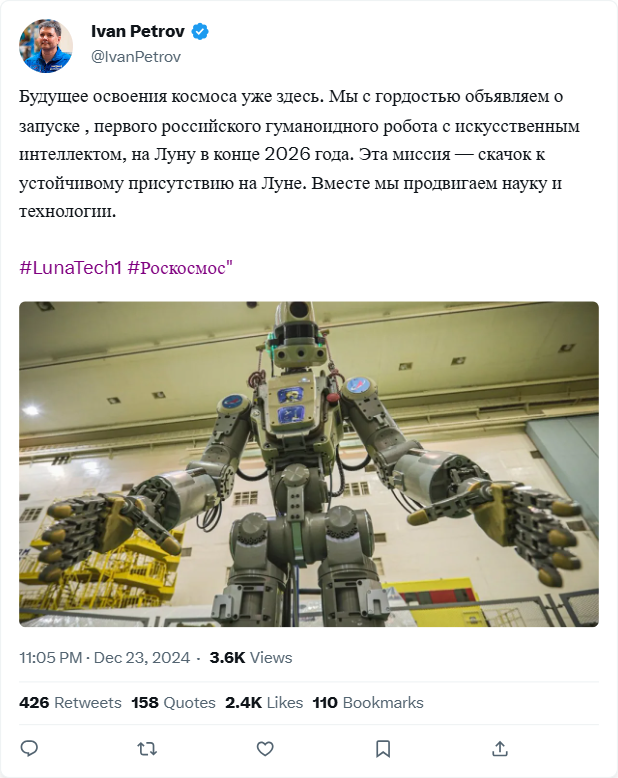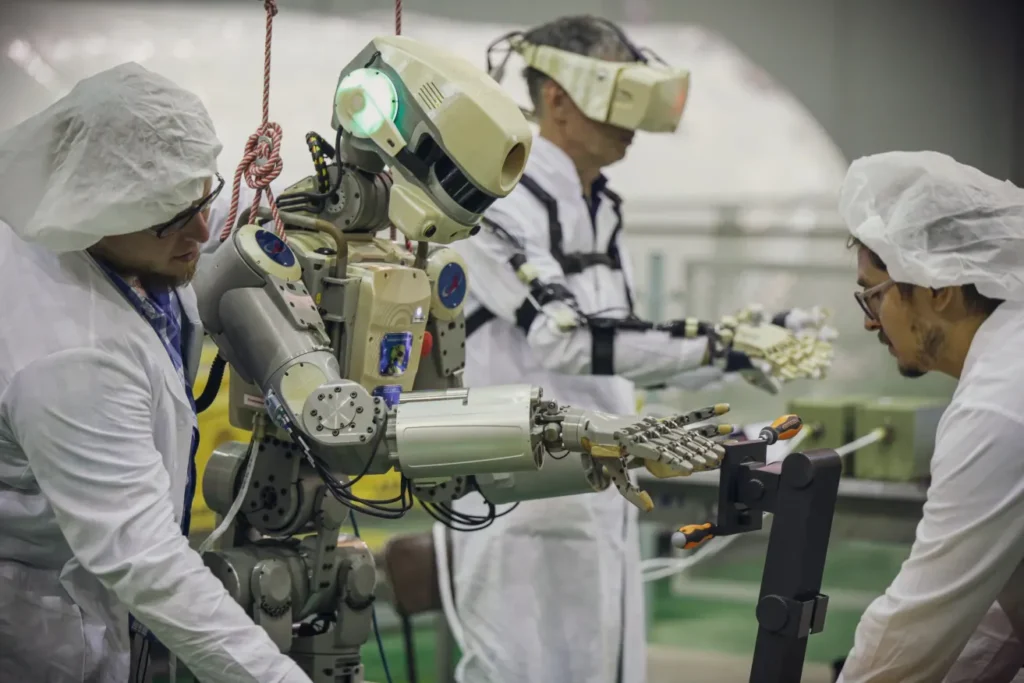Russia has announced an ambitious project to send an AI-powered humanoid robot to the Moon as part of its expanding space exploration program. The mission, scheduled for late 2026, will mark a significant milestone in the integration of artificial intelligence with extraterrestrial exploration.
The centerpiece of this mission is the humanoid robot named Igor, an advanced AI-powered machine designed to operate autonomously in the harsh conditions of the lunar surface. Developed by Russia’s Roscosmos State Corporation in collaboration with the Advanced Research Foundation (FPI) and several private tech firms, Igor represents the pinnacle of robotics and artificial intelligence engineering.
Igor is equipped with advanced sensors, dexterous manipulators, and state-of-the-art machine learning algorithms. It can perform complex tasks such as collecting geological samples, assembling scientific instruments, and conducting on-site analysis. The robot’s design allows it to adapt to the Moon’s extreme temperatures and reduced gravity. Roscosmos officials have stated that the LunaTech-1 mission is a critical step in Russia’s long-term vision for a sustainable human presence on the Moon.

“The future of space exploration is here. We are proud to announce the launch of Igor, Russia’s first AI-powered humanoid robot, to the Moon in late 2026. This mission is a leap toward a sustainable lunar presence. Together, we advance science and technology. #LunaTech1 #Roscosmos”
— Dr. Ivan Petrov, Head of the LunaTech-1 Project
Igor’s AI system is based on a neural network capable of real-time decision-making. It can learn from its environment and modify its approach to tasks based on the data it collects. The robot is also equipped with a modular design, allowing it to adapt to different mission phases, from transport to surface operations.
The communication system of Igor has been specially designed to overcome the challenges of the Earth-Moon distance. Using advanced encryption and high-bandwidth relay satellites, the robot will maintain a steady flow of data and instructions between the lunar surface and mission control on Earth.
This mission places Russia among the leading nations in robotic space exploration. It also underscores the increasing role of AI and robotics in achieving milestones in space science. By integrating these cutting-edge technologies, Roscosmos aims to strengthen its position in the global space race.
The LunaTech-1 mission aligns with international goals of collaboration in space exploration. Roscosmos has expressed its willingness to share data from this mission with global scientific communities to foster mutual advancement.





Leave a Reply